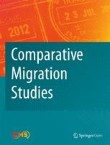The increased influx of migrants into European countries presents a huge challenge both to official statistical bodies, survey researchers, and academics. The need for more comprehensive and reliable data has been acknowledged both by the European Union and international statistical bodies such as the United Nations, the OECD, and the World Bank. In response to these initiatives many European countries have made efforts to improve their national statistical infrastructure on migrants. However, a major issue in migration research is the question of how these new populations integrate into their destination countries and how the integration process can be managed by integration policies. Therefore, it is of great interest both for academic researchers and policymakers how different societal and political contexts facilitate or hamper this integration process, which on top of the aforementioned information needs calls for more data on migrants that is comparable across different national contexts. This special issue contributes to the ongoing debate on comparative designs in migration research by focusing on sampling issues. The special issue will comprise expert reviews from six European Union member states that discuss the possibilities of sampling migrants in their respective countries. Based on this expertise, a separate article will discuss the challenges of devising a comparative sampling design across Western European countries.
Guest editors:
Romana Careja, Syddansk Universitet, Odense, Denmark
Hans-Jürgen Andreß, Universität zu Köln, Köln, Germany
